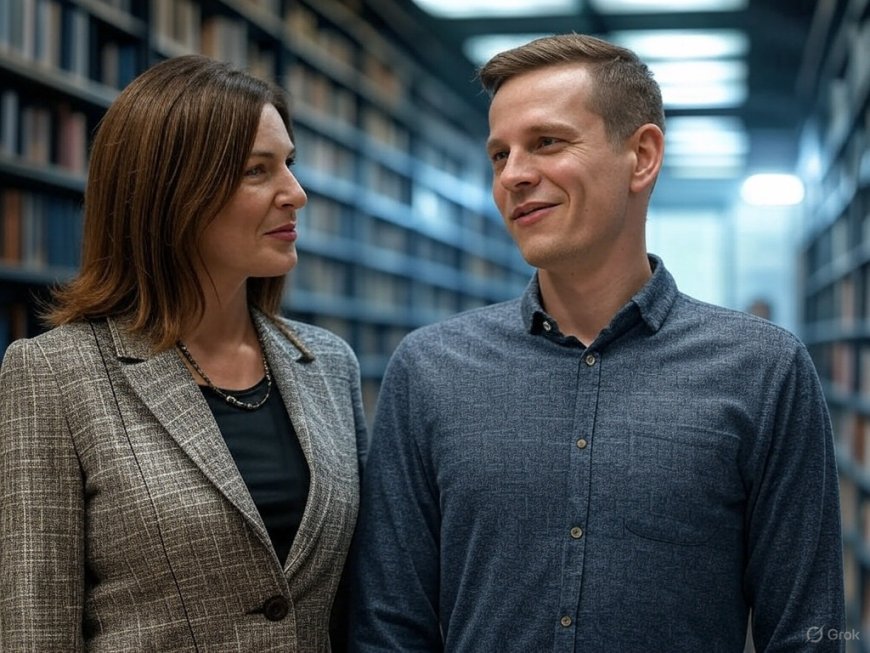The Psychology of First Impressions: How to Make a Lasting Impact in Seconds
Discover the psychology of first impressions and learn how to leave a lasting impact in seconds. Science-backed tips for confidence, communication, and presence.

Introduction
Have you ever met someone and instantly formed an opinion about them? Whether we realize it or not, our brains are wired to make snap judgments. Studies suggest that first impressions are formed within just 7 seconds of meeting someone, and in some cases, as little as a tenth of a second [source].
But what makes a first impression powerful and lasting? From body language and tone of voice to appearance and confidence, several psychological factors shape the way people perceive us.
This article dives deep into the science of first impressions, why they matter, and how you can ensure you leave a positive, lasting impact on everyone you meet.
1. The Science Behind First Impressions
First impressions are controlled by a combination of psychology and neuroscience. Our brains rely on the thin-slicing technique, where we assess a person’s character, trustworthiness, and competence in a fraction of a second [source].
The Three Key Elements of First Impressions
Psychologists break down first impressions into three core components:
- Visual cues (55%) – Your body language, facial expressions, and overall appearance.
- Vocal tone (38%) – How you speak, including pitch, speed, and warmth in your voice.
- Words (7%) – The actual content of what you say.
This means that nonverbal communication is far more powerful than words alone. Even before you speak, people have already decided how they feel about you.
2. How to Make an Outstanding First Impression
Now that we understand the science, let’s explore actionable strategies to make a great first impression every time.
A. Master Your Body Language
1. Maintain Confident Posture
Standing tall with an open posture signals confidence and authority. Avoid slouching or crossing your arms, which can make you appear closed off.
2. Strong, Natural Eye Contact
Eye contact builds trust and connection. Studies show that maintaining eye contact for 60-70% of a conversation makes you appear more likable and trustworthy [source].
3. The Right Handshake
A firm (but not crushing) handshake conveys confidence and professionalism. If shaking hands isn't appropriate, a slight nod with a warm smile works just as well.
B. The Power of Vocal Tone
Your tone of voice can make or break a first impression.
- Speak clearly and confidently without rushing.
- Avoid monotone speech—modulating your tone makes you sound engaging.
- Use a friendly and warm voice to show approachability.
People remember how you made them feel more than what you said. A warm and positive tone ensures a lasting impression.
C. Dress the Part
Your appearance plays a significant role in how others perceive you. Research from Princeton University found that clothing influences snap judgments about competence and trustworthiness [source].
- Dress appropriately for the setting (e.g., business attire for meetings, casual but polished for social gatherings).
- Keep a groomed appearance—neat hair, clean shoes, and well-fitted clothes matter.
- Use colors wisely—blue signifies trust, while red conveys power and confidence.
D. Be an Engaging Conversationalist
Making a strong first impression isn't just about looking the part—it’s about connecting through conversation.
- Use the person’s name—people love hearing their own name, and it makes interactions more personal.
- Listen actively—nodding, paraphrasing, and asking follow-up questions show you’re engaged.
- Find common ground—talking about shared interests builds rapport quickly.
A simple trick: mirror the other person’s tone and body language subtly. This builds instant subconscious trust.
3. The Role of Digital First Impressions
In today’s digital world, first impressions aren’t just made in person—they happen online as well.
- Your LinkedIn profile, email communication, and social media presence all contribute to people’s perceptions of you.
- A professional headshot, well-crafted bio, and engaging content help establish credibility.
- Responding promptly and professionally to emails or messages builds a positive impression in digital interactions.
4. The Psychology of Lasting Impressions
Making a great first impression is one thing, but how do you ensure it lasts?
A. The Primacy and Recency Effect
People remember the first and last parts of interactions the most. This is known as the Primacy and Recency Effect in psychology [source].
What This Means for You:
- Start strong—be confident, warm, and engaging in the first few moments.
- End with a memorable closing statement, such as, “I really enjoyed meeting you. Let’s stay in touch!”
B. Consistency in Behavior
Your actions must align with your first impression. If you appear confident but later show insecurity, it can create cognitive dissonance, making people rethink their initial perception.
C. Follow-Up to Strengthen the Impression
After meeting someone, reinforce the connection:
- Send a short follow-up email or message expressing appreciation.
- If appropriate, connect on LinkedIn or social media.
- Remember small details—mentioning something discussed previously makes you more memorable.
5. Common Mistakes That Ruin First Impressions
Even small missteps can damage first impressions. Avoid these common mistakes:
❌ Poor posture or weak handshake – Signals insecurity.
❌ Overpowering perfume/cologne – Can be distracting.
❌ Interrupting or dominating the conversation – Comes across as self-centered.
❌ Lack of eye contact – Signals dishonesty or low confidence.
❌ Forgetting names quickly – Shows lack of attention.
Conclusion: First Impressions Are Powerful, But You Control Them
First impressions shape how others perceive us, affecting relationships, careers, and social interactions. The good news? You have control over the impression you leave.
By mastering body language, vocal tone, attire, and communication, you can ensure that you make a powerful, lasting impact—both in person and online.
Remember, it only takes a few seconds to shape someone’s perception of you, but those seconds can open doors to lifelong opportunities.
What's Your Reaction?
 Like
0
Like
0
 Dislike
0
Dislike
0
 Love
0
Love
0
 Funny
0
Funny
0
 Angry
0
Angry
0
 Sad
0
Sad
0
 Wow
0
Wow
0



















































